PRODUCTS & SERVICES
Secure your data and hardware, gain real-time insights, and be more productive with the same intelligent, open tools used by Google
Cloud Compute Products
The Perfect Engine for Your Workload
From global, load-balanced, resilient services to flexible single-instance VMs, we provide a scalable range of computing options you can tailor to match your needs. Google Compute Engine provides highly customizable virtual machines with best-of-breed features, friendly pay-for-what-you-use pricing, and the option to deploy your code directly or via containers. Google Kubernetes Engine lets you use fully-managed Kubernetes clusters to deploy, manage, and orchestrate containers at scale. Google App Engine is a flexible platform-as-a-service that lets you focus on your code, freeing you from the operational details of deployment and infrastructure management.
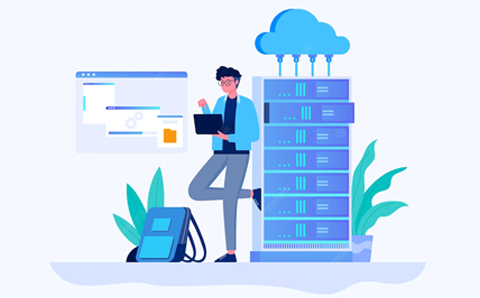
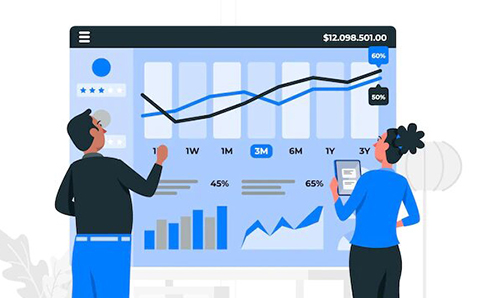
High-Performance, Scalable VMs
Google Compute Engine delivers virtual machines running in Google's innovative data centers and worldwide fiber network. Compute Engine's tooling and workflow support enable scaling from single instances to global, load-balanced cloud computing. Compute Engine's VMs boot quickly, come with high-performance persistent and local disk options, and deliver consistent performance. Our virtual servers are available in many configurations, including predefined sizes, and options to create Custom Machine Types optimized for your specific needs. Flexible pricing and automatic sustained use discounts make Compute Engine the leader in price/performance.
Build Apps, Scale Automatically
Google App Engine is a platform for building scalable web applications and mobile and IoT backends. App Engine provides you with built-in services and APIs, such as NoSQL datastores, memcache, and a user authentication API, common to most applications. App Engine will scale your application automatically in response to the amount of traffic it receives, so you only pay for the resources you use. Just upload your code and Google will manage your app's availability — you don't need to provision or maintain a single server.


Automated Container Management
Google Kubernetes Engine is a powerful cluster manager and orchestration system for running your Docker containers. Kubernetes Engine schedules your containers into the cluster, keeps them healthy and manages them automatically based on requirements you define (such as CPU and memory). It's based on Kubernetes, the leading open-source container orchestration system giving you the flexibility to take advantage of on-premises, hybrid, or public cloud infrastructure.
Private Docker Container Images
Store your private container images on Cloud Platform for fast, scalable retrieval and deployment. Google Cloud Container Registry is a private Docker repository that works with popular continuous delivery systems. It runs on Cloud Platform to provide consistent uptime on an infrastructure protected by Google's security. You pay only for the storage and internet egress you use; there is no per-image fee.
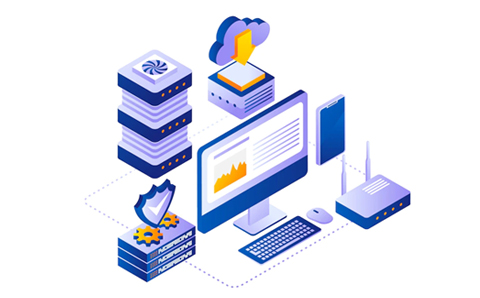
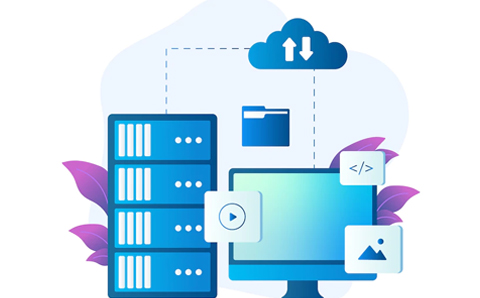
Serverless Applications on Google’s Infrastructure
Cloud computing has made possible fully serverless models of computing where logic can be spun up on-demand in response to events originating from anywhere. With Cloud Functions, you can construct applications from bite-sized business logic billed to the nearest 100 milliseconds, only while your code is running. Serve users from zero to planet-scale, all without managing any infrastructure.
COMPUTE GUIDES AND RESOURCES
Migrating VMs to Cloud Platform
Cloud Platform for AWS Profession
App Engine Tutorials
Kubernetes Engine Tutorials
Compute Engine Tutorials
Cloud Storage Products
Managed databases (RDBMS, NoSQL), object, block and file storage, and archival
Whatever your storage needs, Google Cloud Platform has you covered. We offer object storage for different needs and price points, block storage for your VMs, file storage for applications that need a shared filesystem, as well as managed MySQL and globally scalable NoSQL databases. Our archival storage provides industry-leading pricing with the performance of disc.
Choosing a storage option
Different applications and workloads require different storage and database solutions. Learn about solutions that fit your scenarios, whether they are mobile applications, hosting commercial software, data pipelines, or storing backups.
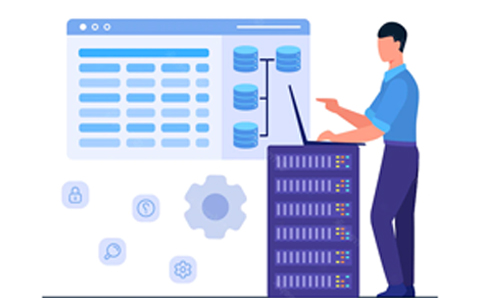
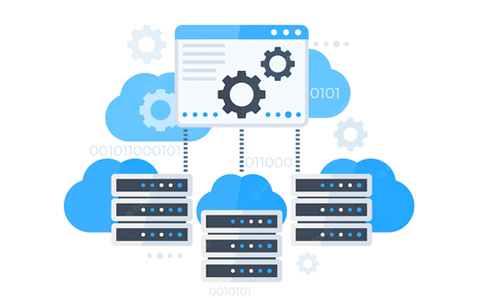
Google Cloud Storage
Google Cloud Storage redefines what the industry can expect from online storage by providing a unified offering across the availability spectrum: from live data tapped by today’s most demanding applications, to cloud archival solutions Nearline and Coldline. Featuring a consistent API, latency, and speed across storage classes, learn why Google’s infrastructure is the best online cloud storage for your most critical data.
Cloud FilestoreBETA
Cloud Filestore is a managed file storage service for applications that require a file system interface and a shared file system for data. Filestore gives our users a simple, native experience for standing up managed Network Attached Storage (NAS) with their Google Compute Engine instances. The ability to tune Filestore's IOPs and capacity independently leads to better and more predictable performance for your file-based workloads.
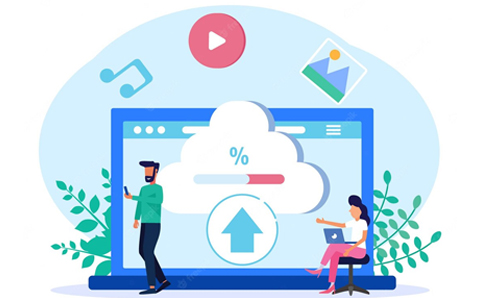
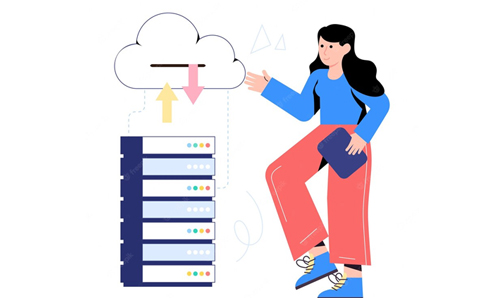
Cloud SQL
Cloud SQL is a fully-managed database service that makes it easy to set up, maintain, manage, and administer your relational MySQL and PostgreSQL databases in the cloud. Cloud SQL offers high performance, scalability, and convenience. Hosted on Google Cloud Platform, Cloud SQL provides a database infrastructure for applications running anywhere.
Cloud Bigtable
Cloud Bigtable provides a massively scalable NoSQL database suitable for low-latency and high-throughput workloads. It integrates easily with popular Big Data tools like Hadoop and Spark and it supports the open-source, industry-standard HBase API. Cloud Bigtable is a great choice for both operational and analytical applications, including IoT, user analytics, and financial data analysis.
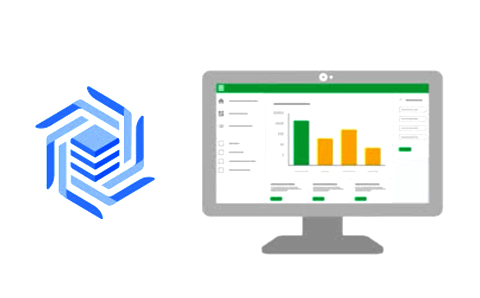
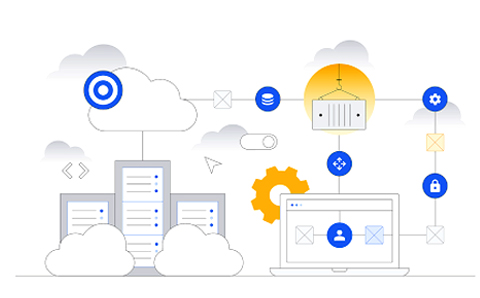
Cloud Spanner
Cloud Spanner is a fully managed, mission-critical relational database service built from the ground up and battle tested for transactional consistency, high availability, and global scale. With traditional relational semantics (schemas, ACID transactions, SQL) and automatic, synchronous replication with high availability, Cloud Spanner is the only database service of its kind on the market.
STORAGE GUIDES AND RESOURCES
Choosing a Storage Option
Object Storage Classes
Storage Solutions for any Scale
Cloud Storage Transfer Service
Get started with gsutil
Loading Offline Data
Cloud AI
Inject AI into Your Business
Google Cloud's AI provides modern machine learning services, with pre-trained models and a service to generate your own tailored models. Our neural net-based ML service has better training performance and increased accuracy compared to other large scale deep learning systems. Our services are fast, scalable and easy to use. Major Google applications use Cloud machine learning, including Photos (image search), the Google app (voice search), Translate, and Inbox (Smart Reply). Our platform is now available as a cloud service to bring unmatched scale and speed to your business applications.
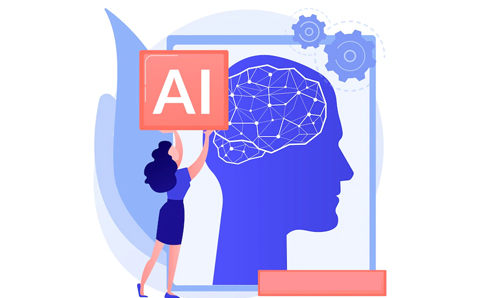
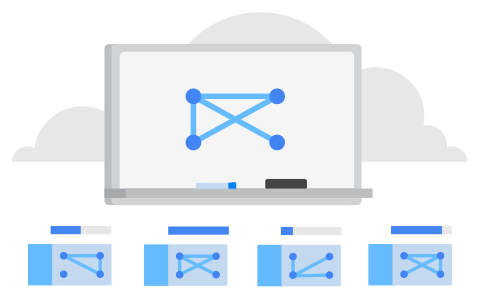
Train Custom Machine Learning Models
Cloud AutoML is a suite of Machine Learning products that enables developers with limited machine learning expertise to train high quality models by leveraging Google’s state of the art transfer learning, and Neural Architecture Search technology.
AutoML Vision is the first product to be released. It is a simple, secure and flexible ML service that lets you train custom vision models for your own use cases. Soon, Cloud AutoML will release other services for all other major fields of AI. To express interest and help shape the future of Cloud AutoML products, you can share your ideas with us.
Hardware Optimized for Machine Learning
Google Cloud TPUs are a family of hardware accelerators that Google designed and optimized specifically to speed up and scale up ML workloads for training and inference programmed with TensorFlow. TPUs are designed to deliver the best performance per dollar for targeted TensorFlow workloads, and to enable ML engineers and researchers to iterate more quickly.


Large Scale Machine Learning Service
Google Cloud Machine Learning Engine makes it easy for you to build sophisticated, large scale machine learning models that cover a broad set of scenarios from building sophisticated regression models to image classification. It is portable, fully managed, and integrated with other Google Cloud Data platform products such as Google Cloud Storage, Google Cloud Dataflow and Google Cloud Datalab so you can easily train your models.
Powerful Job Search and Discovery
Google Cloud Job Discovery provides highly intuitive job search that anticipates what job seekers are looking for and surfaces targeted recommendations that help them discover new opportunities. In order to provide the most relevant search results and recommendations, the API uses machine learning to understand how job titles and skills relate to one another, and what job content, location and seniority are the closest match for a jobseeker’s preferences.


Create conversational experiences across devices and platforms
Dialogflow Enterprise Edition is an end-to-end development suite for building conversational interfaces for websites, mobile applications, popular messaging platforms, and IoT devices. You can use it to build interfaces (e.g., chatbots) that are capable of natural and rich interactions between your users and your business. It is powered by machine learning to recognize the intent and context of what a user says, allowing your conversational interface to provide highly efficient and accurate responses.
Powerful Video Analysis
Google Cloud Video Intelligence API makes videos searchable and discoverable by extracting metadata, identifying key nouns, and annotating the content of the video. By calling an easy-to-use REST API, you can now search every moment of every video file in your catalog and find each occurrence of key nouns as well as its significance. Separate signal from noise, by retrieving relevant information by video, shot, or frame.
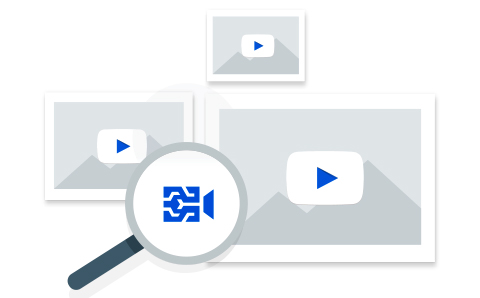
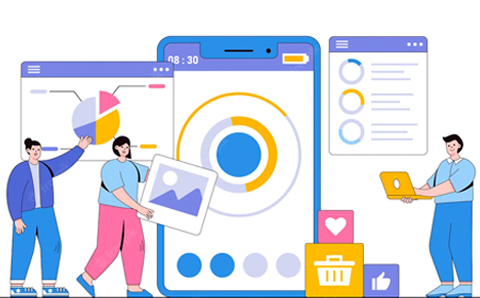
Powerful Image Analysis
Google Cloud Vision API enables you to understand the content of an image by encapsulating powerful machine learning models in an easy to use REST API. It quickly classifies images into thousands of categories (e.g. "sailboat", "Eiffel Tower"), detects individual objects and faces within images, and finds and reads printed words contained within images.
Powerful Speech Recognition
Google Cloud Speech-to-Text enables developers to convert audio to text by applying powerful neural network models in an easy to use API. The API recognizes 120 languages and variants, to support your global user base. You can enable voice command-and-control, transcribe audio from call centers, and more. It can process real-time streaming or pre-recorded audio, using Google’s machine learning technology.


High-Fidelity Speech Synthesis
Google Cloud Text-to-Speech enables developers to synthesize natural-sounding speech with 32 voices, available in multiple languages and variants. It applies DeepMind’s groundbreaking research in WaveNet and Google’s powerful neural networks to deliver the highest fidelity possible. As an easy-to-use API, you can create lifelike interactions with your users, across many applications and devices.
Powerful Text Analysis
Google Natural Language API reveals the structure and meaning of text by offering powerful machine learning models in an easy to use REST API. You can use it to extract information about people, places, events and much more, mentioned in text documents, news articles or blog posts. You can also use it to understand sentiment about your product on social media or parse intent from customer conversations happening in a call center or a messaging app.


Fast, Dynamic Translation
Google Cloud Translation API provides a simple programmatic interface for translating an arbitrary string into any supported language. Translation API is highly responsive, so websites and applications can integrate with Translation API for fast, dynamic translation of source text from the source language to a target language (e.g. French to English).
MACHINE LEARNING GUIDES AND RESOURCES
Get started with using Machine Learning on GCP
Cloud Vision API Beta Blog Post
Advanced Solutions Lab
Analyze Financial Time Series with ML
TensorFlow
Pricing
Cloud ML Blog Post
Big Data Solutions
What’s Next For Big Data
We offer a proven, integrated end to end Big Data solution, based on years of innovation at Google, that lets you capture, process, store and analyze your data within a single platform. With Google Cloud Platform you can focus on finding insights rather than managing your infrastructure and you can combine cloud-native services with open source tools as needed, both in batch and stream mode.

Batch and Stream Data Processing
Google Cloud Dataflow offers a unified programming model and a managed service for executing a wide range of data processing patterns including streaming analytics, ETL, and batch computation. Cloud Dataflow frees you from operational tasks like capacity planning, resource management and performance optimization.
Managed Hadoop & Spark
Use Google Cloud Dataproc, a managed Spark and Hadoop service, to easily process big datasets using the powerful and open tools in the Apache big data ecosystem. Control your costs by creating managed clusters of any size in about a minute, and turning them off when you're done, paying for what you use, not idle clusters. Cloud Dataproc integrates with storage, compute, and monitoring services across Cloud Platform products, giving you a powerful and complete data processing platform.
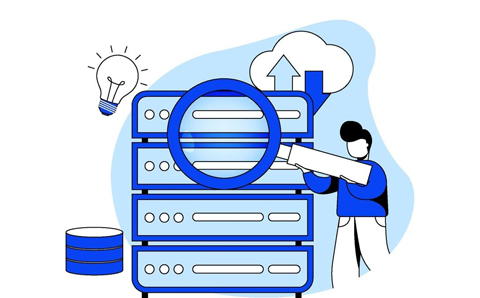
Workflow Orchestration
Google Cloud Composer is a fully managed workflow orchestration service that empowers you to author, schedule, and monitor pipelines that span across clouds and on-premises data centers. Built on the popular Apache Airflow open source project and operated using the Python programming language, Cloud Composer is free from lock-in and easy to use.
Powerful Data Exploration
Google Cloud Datalab is an interactive notebook (based on Jupyter) to explore, collaborate, analyze and visualize data. It is integrated with BigQuery and Google Cloud Machine Learning to give you easy access to key data processing services.


Tell great data stories to support better business decisions
Google Data Studio turns data into dashboards and reports that are easy to read, share, and customize.
Intelligent Data Preparation
Google Cloud Dataprep is an intelligent data service for visually exploring, cleaning, and preparing structured and unstructured data for analysis. Cloud Dataprep is serverless and works at any scale. There is no infrastructure to deploy or manage. Easy data preparation with clicks and no code.
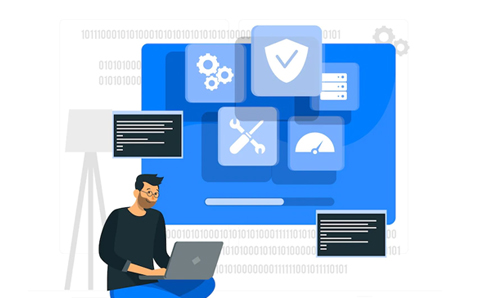
Scalable Event Ingestion and Messaging Middleware
Google Cloud Pub/Sub is a serverless, large scale, reliable, real-time messaging service that allows you to send and receive messages between independent applications. You can leverage Cloud Pub/Sub’s flexibility to decouple systems and components hosted on Cloud Platform or elsewhere on the Internet. By building on the same technology Google uses, Cloud Pub/Sub is designed to provide “at least once” delivery at low latency with on-demand scaling to tens of millions of messages per second.
Build a Serverless Analytics Platform
From ingestion to data preparation, store, and analysis, Cloud Platform provides a suite of serverless services which free you from the need to deploy and operate clusters, or to guess the amount of resources needed ahead of time. Combine Cloud-native data processing services with the best of open source to easily manage data and benefit from it, today.

BIG DATA GUIDES AND RESOURCES
Get started using Google Cloud Big Data Products
Get Started with BigQuery
Cloud Big Data Blog
Get Started with Dataproc
Dataflow Programming Mode
Customers on Cloud Platform
Apache Beam
Cloud Data Transfer
Family of Data Transfer Services
Whether you are in Denver, Colorado or Denmark, whether you have 50 Gigabytes or 50 Petabytes of data, whether you have access to a T1 line or a 10 Gbps network connection, Google offers solutions to meet your unique data transfer needs and get your data on the cloud quickly and securely.
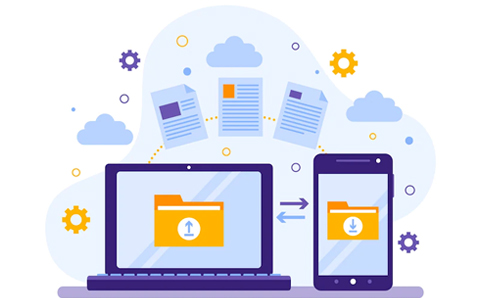

Online Transfer
Use your network to move data to Google Cloud Storage.

Cloud Storage Transfer Service
Transfer your data from one cloud to another..
Choose the Right Service


CLOUD DATA TRANSFER USE CASES
Data Center Migration
The data you create and store on-premises takes relentless focus and significant resources to manage it cost-effectively, securely, and reliably. As organizations face exponential growth of their data many are turning to the cloud to scale with them in their efforts. For your structured and unstructured data sets, whether they are small and frequently accessed or huge and rarely referenced, Google offers solutions to migrate that data quickly to Google Cloud Storage , BigQuery or Dataproc.
Decommission Tape Libraries and Infrastructure
Many organizations accumulate vast libraries of magnetic tape as they copy data for backup, archival or disaster recovery purposes. While critical in the event of a disaster, data on tape does not provide any value to your users and requires cumbersome infrastructure to maintain. Working with our many partners, you can easily transfer data from tape to Google Cloud Storage. Once in Google Cloud you can generate new insights with advanced analytics, discover it more easily for regulatory and legal purposes and apply machine learning.
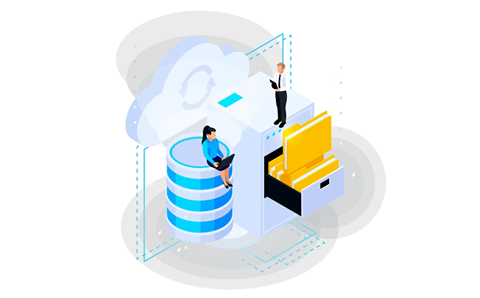

Machine Learning
Once transferred to Google Cloud Storage or BigQuery your data is accessible via our Google Cloud Dataflow processing service for machine learning projects. Google Cloud Machine Learning Engine is a managed service that enables you to easily build machine learning models, that work on any type of data, of any size. Create your model with the powerful TensorFlow framework that powers many Google products, from Google Photos to Google Cloud Speech. Build models of any size with our managed scalable infrastructure. Your trained model is immediately available for use with our global prediction platform that can support thousands of users and TBs of data.
Content Storage and Delivery
If you need to serve users around the world with the highest availability, Google offers multi-regional setups designed for video streaming and frequently accessed content like web sites and images. For analytics and batch processing, regional setups are available to meet the unique requirements of those workloads. For content-rich use cases like these you can choose a data transfer option that will have minimal impact on your network while moving large amounts of data.
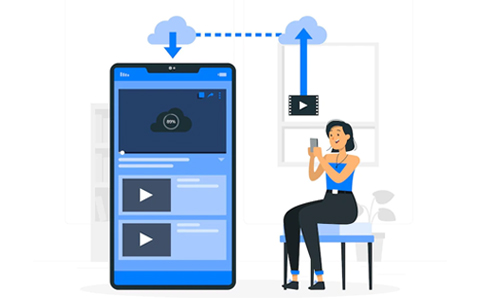

Backup and Archival
With increased frequency of cloud outages you need to ensure your data is always available. Using our data transfer services you can easily backup data from another cloud storage provider to Google Cloud Storage. You can ensure your data is retained cost-effectively by taking advantage of ultra low-cost, highly-durable and highly available archival storage offered through Google’s Nearline and Coldline storage classes. Object lifecycle management enables this automatically, transitioning data from one storage class to the next depending on your business’s cost and availability needs at the time.
CLOUD DATA TRANSFER FEATURES
Fast and secure data transfers for any dataset or network
 Online Transfers
Online Transfers
Simple
The gsutil command line, drag-and-drop functionality, and JSON API enable you to upload data via the method and language you prefer. The BigQuery Data Transfer Service requires no deployment and can be configured via an easy to use user interface.
Direct
The BigQuery Data Transfer Service enables you to connect directly to leading applications like Adwords, DoubleClick Campaign Manager, DoubleClick for Publishers, and YouTube Content and Channel Owner Reports. Or many others via our partners.
 Across Clouds
Across Clouds
Reliable
You can use Cloud Storage Transfer Service to back up data to a Google Cloud Storage bucket from other cloud storage providers. By default, Cloud Storage Transfer Service ensures your content is correctly transferred over. It copies a file from the data source if the file doesn't exist in the data sink or if it differs between the version in the source and the sink.
Predictable
Schedule one-time or recurring transfers of data. Schedule periodic synchronization from data source to data sink with advanced filters based on file creation dates, file-name filters, and the times of day you prefer to import data.
Consistent
The Cloud Storage Transfer Service allow you to delete existing objects in the destination bucket if they don't have a corresponding object in the source. Delete source objects after transferring them.
 Offline Transfer
Offline Transfer
Scalable
Capture up to a petabyte of data on one Transfer Appliance. Or use multiple appliances to transfer more data. All without impacting your outbound network.
Familiar
The Transfer Appliance is easily mounted into open rackspace in your datacenter and can be mounted as Network Attached Storage (NAS). A simple user interface will guide you through local data capture, and your Google Cloud Platform console will guide you through decryption and ingestion.
Secure
Data is encrypted at the moment of capture and you decrypt your own data once as it is ingested into its final storage bucket.
Cloud Management Tools
Cloud-native Application Management
Stackdriver delivers real time monitoring and logging across GCP and AWS, plus useful diagnostic tools. Manage your apps on GCP with our web-based console, mobile app, or Cloud Shell -- instant command line access through your browser. You can access all Google APIs, including GCP’s Billing API, through these interfaces. Use Deployment Manager templates to simplify your life. Use Cloud Endpoints to manage your APIs. Get started now with our cloud-native management tools.
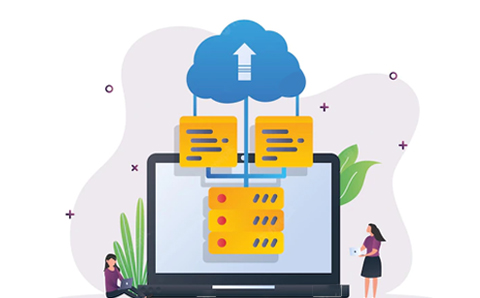
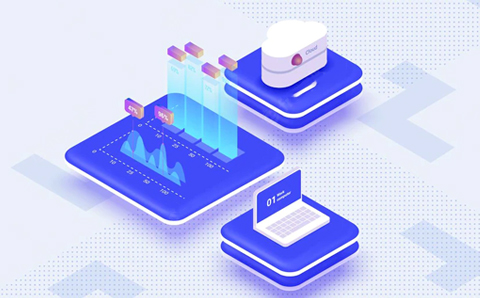
Integrated monitoring, logging & diagnostics
Google Stackdriver provides powerful monitoring, logging, and diagnostics. It equips you with insight into the health, performance, and availability of cloud-powered applications, enabling you to find and fix issues faster. It is natively integrated with Google Cloud Platform, Amazon Web Services, and popular open source packages. Stackdriver provides a wide variety of metrics, dashboards, alerting, log management, reporting, and tracing capabilities.
Full-Stack Monitoring, Powered by Google
Stackdriver Monitoring provides visibility into the performance, uptime, and overall health of cloud-powered applications. Stackdriver collects metrics, events, and metadata from Google Cloud Platform, Amazon Web Services (AWS), hosted uptime probes, application instrumentation, and a variety of common application components including Cassandra, Nginx, Apache Web Server, Elasticsearch, and many others. Stackdriver ingests that data and generates insights via dashboards, charts, and alerts. Stackdriver alerting helps you collaborate by integrating with Slack, PagerDuty, HipChat, Campfire, and more.
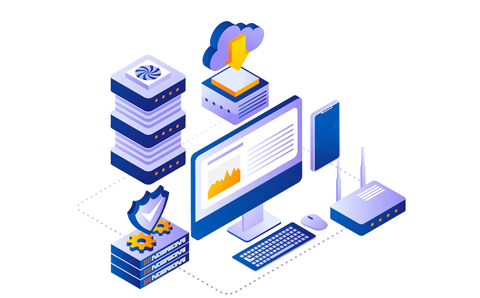

Real-time Log Management and Analysis
Stackdriver Logging allows you to store, search, analyze, monitor, and alert on log data and events from Google Cloud Platform and Amazon Web Services (AWS). Our API also allows ingestion of any custom log data from any source. Stackdriver Logging is a fully-managed service that performs at scale and can ingest application and system log data from thousands of VMs. Even better, you can analyze all that log data in real-time.
Real-time Exception Monitoring and Alerting
Stackdriver Error Reporting counts, analyzes and aggregates the crashes in your running cloud services. A centralized error management interface displays the results with sorting and filtering capabilities. A dedicated view shows the error details: time chart, occurrences, affected user count, first and last seen dates and a cleaned exception stack trace. Opt-in to receive email alerts on new errors.


Detailed Performance Insights
Stackdriver Trace is a distributed tracing system for Google Cloud Platform that collects latency data from your applications and displays it in the Google Cloud Platform Console. You can see detailed near real-time insights into application performance. Stackdriver Trace automatically analyzes all your application traces to generate in-depth performance reports to surface application performance degradations and call flow performance bottlenecks.
Detailed Performance Insights and Analytics
Stackdriver Debugger is a feature of the Google Cloud Platform that lets you inspect the state of an application at any code location without using logging statements and without stopping or slowing down your applications. Your users are not impacted during debugging. Using the production debugger you can capture the local variables and call stack and link it back to a specific line location in your source code. You can use this to analyze the production state of your application and understand the behavior of your code in production.

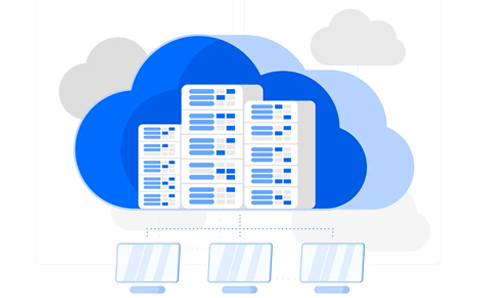
Simplify Your Cloud Management
Google Cloud Deployment Manager allows you to specify all the resources needed for your application in a declarative format using yaml. You can also use python or Jinja2 templates to parameterize the configuration and allow reuse of common deployment paradigms such as a load balanced, auto-scaled instance group. Treat your configuration as code and perform repeatable deployments.
Manage Your APIs
Develop, deploy, protect and monitor your APIs with Google Cloud Endpoints. An NGINX-based proxy and distributed architecture give unparalleled performance and scalability. Using an Open API Specification or one of our API frameworks, Cloud Endpoints gives you the tools you need for every phase of API development and provides insight with Google Cloud Monitoring, Cloud Trace, and Stackdriver Logging.
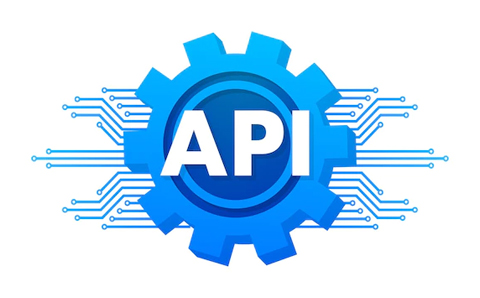

Powerful Web Admin UI
Manage and get insights into everything that powers your cloud application -- including web applications, data analysis, virtual machines, datastore, databases, networking, and developer services. Google Cloud Console helps you deploy, scale and diagnose production issues in a simple web based interface. Search to quickly find resources and connect to instances via SSH in the browser. Handle devops workflows on the go with powerful native iOS and Android applications. Master the most complex development tasks with Google Cloud Shell, your admin machine in the cloud.
Your Google Curated Admin Machine
Google Cloud Shell provides you with command-line access to your cloud resources directly from your browser. You can easily manage your projects and resources without having to install the Google Cloud SDK or other tools on your system. With Cloud Shell, the Cloud SDK gcloud command and other utilities you need are always available, up to date and fully authenticated when you need them.
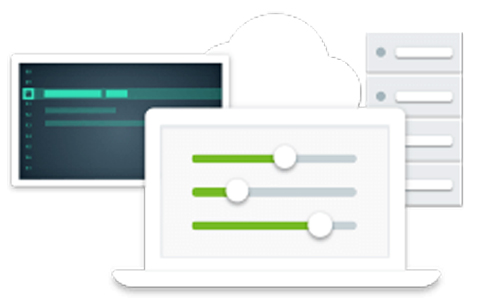
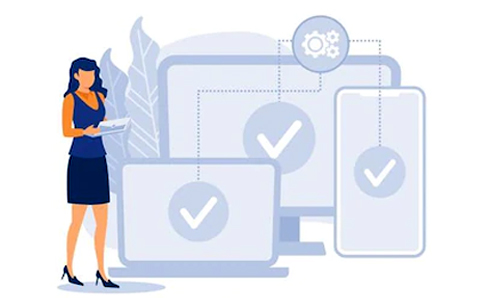
Cloud Platform in a Mobile App
The Google Cloud Console mobile app gives you a convenient way to discover, understand, and respond to production issues. Monitor and make changes to Cloud Platform resources from your iOS and Android device. Manage Cloud Platform resources such as projects, billing, Google App Engine apps, and Google Compute Engine VMs. Receive and respond to alerts helping you quickly address production-impacting issues.
Google Cloud Billing API Documentation
The Google Cloud Billing API provides methods that you can use to programmatically manage billing for your projects in the Google Cloud Platform.
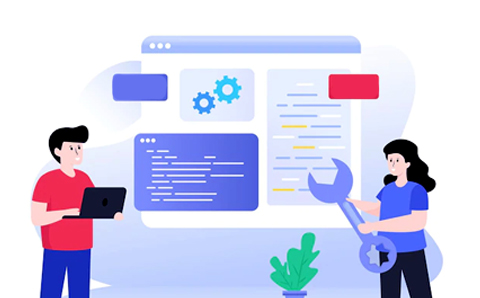
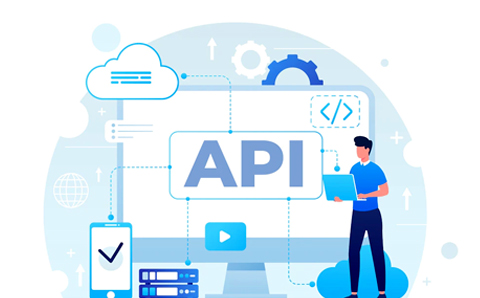
Google Cloud APIs
Access Google Cloud Platform products from your code. Cloud APIs provide similar functionality as Cloud SDK and Cloud Console, and allow you to automate your workflows by using your favorite language. Use these Cloud APIs with REST calls or client libraries in popular programming languages.
MANAGEMENT TOOLS GUIDES AND RESOURCES
GCP Overview
GCP for Data Center Professionals
Puppet, Chef, Salt, Ansible on GCP
Image Management Best Practices
Automated Image Builds
Managing GCP with PowerShell
Cloud Networking Products
A Fast, High Performance Global Network
Google’s high quality private network connects our regional locations to more than 100 global network points of presence close to your users. Google Cloud Platform also uses state-of-the-art software-defined networking and distributed systems technologies to host and deliver your services around the world. Google global VPC leverages the Google-owned global high-speed network to link your applications across regions—privately and reliably. When every millisecond of latency counts, Google ensures that your content is delivered with the highest throughput, thanks to innovations like BBR congestion control intelligence.


Manage Networking For Your Resources
With Google Virtual Private Cloud (VPC) Network, you can provision your Google Cloud Platform resources, connect them to each other using the Google-owned global network, and isolate them from one another. You can also define fine-grained networking policies with Cloud Platform, on-premise or other public cloud infrastructure. VPC Network is a comprehensive set of Google-managed networking capabilities, including granular IP address range selection, routes, firewall, Virtual Private Network (VPN) and Cloud Router.
Worldwide Autoscaling and Load Balancing
Scale your applications on Google Compute Engine from zero to full-throttle with Google Cloud Load Balancing, with no pre-warming needed. Distribute your load balanced compute resources in single or multiple regions, close to your users and to meet your high availability requirements. Cloud Load Balancing can put your resources behind a single anycast IP and scale your resources up or down with intelligent Autoscaling. Cloud Load Balancing comes in a variety of flavors and is integrated with Google Cloud CDN for optimal application and content delivery.


Highly Available Global DNS Network
Google Cloud DNS is a scalable, reliable and managed authoritative Domain Naming System (DNS) service running on the same infrastructure as Google. It has low latency, high availability and is a cost-effective way to make your application and services available to your users. Cloud DNS translates requests for domain names like www.google.com into IP addresses like 74.125.29.101. Cloud DNS is programmable. You can easily publish and manage millions of DNS zones and records using our simple user interface, command-line interface or API.
Fast, High Availability Interconnect
Google Cloud Interconnect allows Cloud platform customers to connect to Google via enterprise-grade connections with higher availability and/or lower latency than their existing Internet connections. Connections are offered by Carrier Interconnect service provider partners, and may offer higher SLAs than standard Internet connections. Google also supports direct connections to its network through direct peering. Customers who cannot meet Google at its peering locations, or do not meet peering requirements, may benefit from Carrier Interconnect.
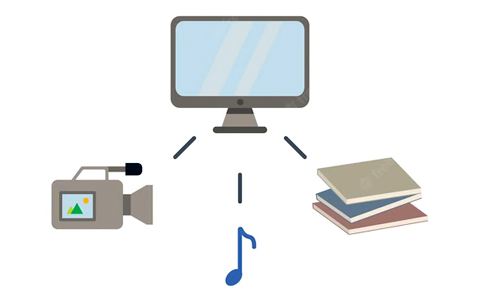
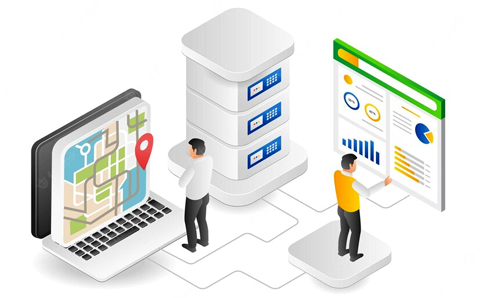
Content Delivery Network
Google Cloud CDN leverages Google's globally distributed edge caches to accelerate content delivery for websites and applications served out of Google Compute Engine. Cloud CDN lowers network latency, offloads origins, and reduces serving costs. Once you've set up HTTP(S) Load Balancing, simply enable Cloud CDN with a single checkbox.
NETWORKING GUIDES AND RESOURCES
Get started using Google Cloud Networking Products
Looking Under the Hood
Cloud Services with a Global Footprint
Secure and Flexible Sandbox
Enterprise Best Practices
Inside Google’s Data Center Networks
Our Software Network LB Design
Cloud Developer Tools
Develop Faster on GCP
Google Cloud Platform provides a collection of tools and libraries that help you develop quicker. We’re developers too and we love tools that make us more productive, so we’re happy to offer these for use on GCP. Whether you’re looking to manage your resources from the command line, need better ways to debug source code in production, need a solution for running API backends or just want intuitive integration into your favorite IDE, we’re constantly working on tooling to make your life easier.
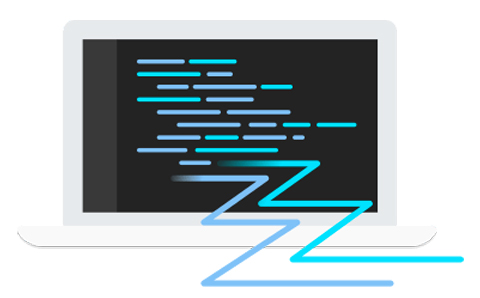
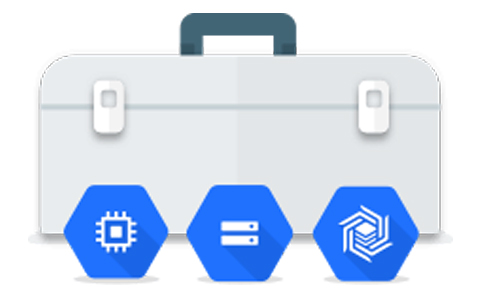
Essential Tools for Cloud Platform
Google Cloud SDK is a set of libraries and tools that you can use to manage computing resources and applications hosted on Google Cloud Platform. With the Cloud SDK, you have interactive command line tools to manage your virtual machines, your Cloud SQL instances, your deployments and more! The Cloud SDK also includes libraries for the Google Cloud APIs available in your language’s package manager, like Maven, npm and NuGet..
Simplify Your Cloud Management
Cloud Deployment Manager allows you to specify all the resources needed for your application in a declarative format using yaml. You can also use python or Jinja2 templates to parameterize the configuration and allow reuse of common deployment paradigms such as a load balanced, auto-scaled instance group. Treat your configuration as code and perform repeatable deployments.


Collaborative Development on Git
Google Cloud Source Repositories are private Git repositories hosted on the Cloud Platform. You can use Cloud Source Repositories for collaborative development between members of your team, or use it with Stackdriver Debugger for real-time debugging of cloud apps. You can also connect your Cloud Source Repositories to repositories hosted on GitHub or Bitbucket. Connected repositories are synced automatically in both directions.
Make IntelliJ Your Cloud Platform IDE
With Cloud Tools for IntelliJ you can easily deploy Java backends for your cloud apps to the Google App Engine flexible environment. You can run and test the backend locally, and when you're finished developing, you can deploy your backend live from within IntelliJ IDEA Community or Ultimate Editions. If there are problems in product, you can debug your cloud backend using Stackdriver Debugger without making your users wait.
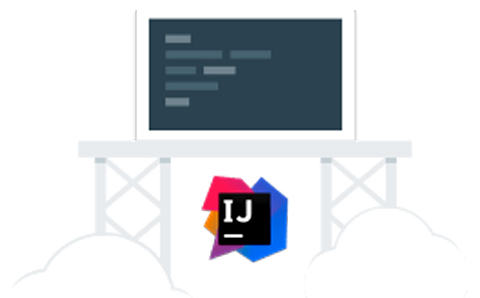
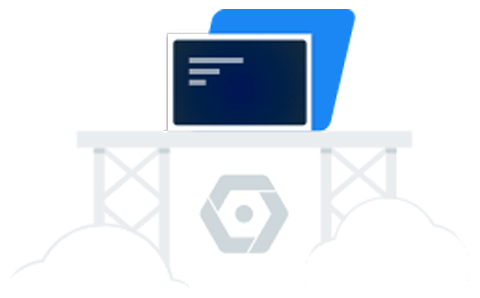
PowerShell on Google Cloud Platform
Cloud Tools for PowerShell lets you script, automate, and manage your Windows workloads running on Cloud Platform. Using PowerShell’s powerful scripting environment, customize your cloud workflows using the Windows tools you’re already familiar with.
Visual Studio as Your Cloud Platform IDE
Cloud Tools for Visual Studio is a powerful environment to build Windows and .NET applications and deploy them to Cloud Platform directly from your favorite IDE. Tap Google APIs, manage cloud resources, and deploy .NET applications to high-performance Windows VMs running on Google Compute Engine. Run and test your application locally and deploy to the cloud seamlessly right from Visual Studio.
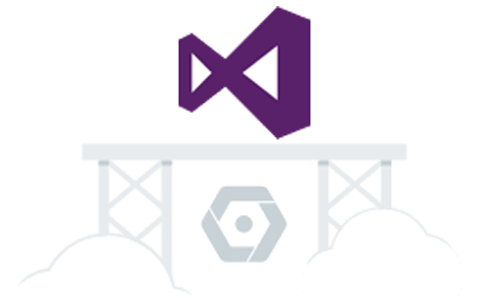
Firebase Test Lab
Firebase Test Lab provides cloud-based infrastructure for testing mobile apps. With one operation, you can initiate testing of your app across a wide variety of devices and device configurations. Test results—including logs, videos, and screenshots—are made available in your project in the Firebase console. Even if you haven't written any test code for your app, Test Lab can exercise your app automatically, looking for crashes.





